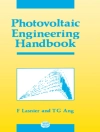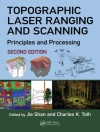The U.S. space program is rapidly changing from an activity driven by federal government launches to one driven by commercial launches. In 1997, for the first time commercial launches outnumbered government launches at the Eastern Range (ER), located at Cape Canaveral Air Station, Florida. Commercial activity is also increasing at the Western Range (WR), located at Vandenberg Air Force Base, California. The government itself is emulating commercial customers, shifting from direct management of launch programs to the purchase of space launch services from U.S. commercial launch companies in an open, competitive market.The fundamental goal of the U.S. space program is to ensure safe, reliable, and affordable access to space. Despite the inherent danger of space launches, the U.S. space program has demonstrated its ability to protect the public. No launch site worker or member of the general public has been killed or seriously injured in any of the 4, 600 launches conducted at the ER and WR during the entire 50-year history of the space age.Streamlining Space Launch Range Safety discusses whether range safety processes can be made more efficient and less costly without compromising public safety. This report presents six primary recommendations, which address risk management, Africa gates, roles and responsibilities, range safety documentation [EWR 127-1]), global positioning system (GPS) receiver tracking systems, and risk standards for aircraft and ships.
Aeronautics and Space Engineering Board & Commission on Engineering and Technical Systems
Streamlining Space Launch Range Safety [EPUB ebook]
Streamlining Space Launch Range Safety [EPUB ebook]
Buy this ebook and get 1 more FREE!
Language English ● Format EPUB ● Pages 70 ● ISBN 9780309172141 ● Publisher National Academies Press ● Published 2000 ● Downloadable 3 times ● Currency EUR ● ID 7142395 ● Copy protection Adobe DRM
Requires a DRM capable ebook reader












